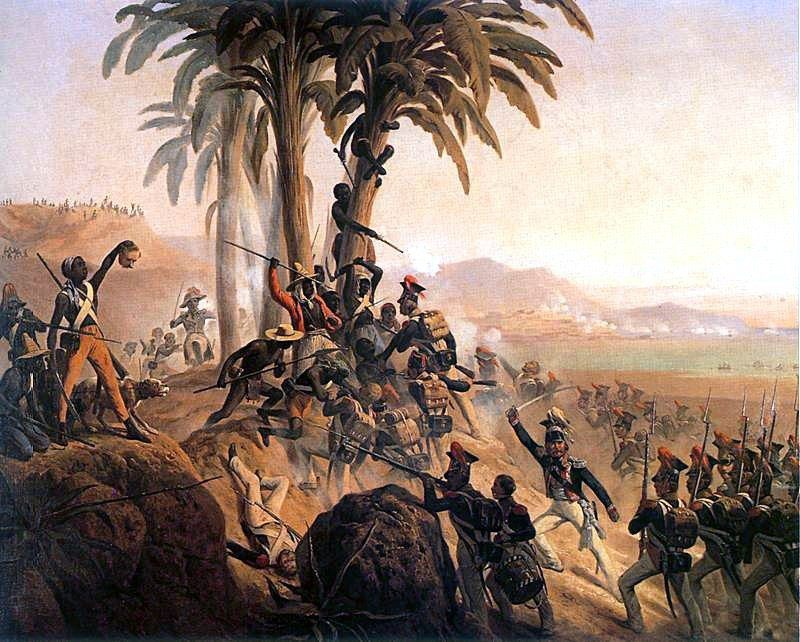The Revolution Spreads To Saint-Domingue

Wikimedia CommonsThe Battle at San Domingo.
By abolishing slavery through a grassroots social revolution, the events transpiring in Saint-Domingue struck fear into the hearts of the powerful both in the region and abroad, who had invested in maintaining the status quo. The United States, for one, hastened to send arms to quell the uprising. Even George Washington wrote, “How regrettable to see such a spirit of revolt among the Negroes.”
Washington’s lamentations did not keep the slave revolt of Saint-Domingue from inspiring slaves in the United States. As the American abolitionist Frederick Douglass said:
“When they struck for freedom, they builded better than they knew. Their swords were not drawn and could not be drawn simply for themselves alone. They were linked and interlinked with their race, and striking for their freedom, they struck for the freedom of every black man in the world.”
Still, Louverture’s mark on history wouldn’t be limited to slave revolt and abolition alone. Operating under the title of General-in-Chief of the Army, Toussaint Louverture led the French in ousting the British and then in capturing the Spanish-controlled half of the island.
Back in France, meanwhile, a coup had overthrown the Jacobins and left the Directory in power. The Directory formally approved Louverture’s increasing leadership in Saint-Domingue, making him Lieutenant Governor of the colony in April 1796 and commander in chief of the French forces in 1797.
By 1801, although Saint-Domingue remained a French colony, Toussaint Louverture ruled it as an independent state. He even drafted a constitution in which he reiterated the 1794 abolition of slavery and appointed himself governor.
This freedom was short-lived, however. When Napoleon came to power, he responded to the pleas of the plantation owners by reinstating slavery in the French colonies, once again plunging Saint-Domingue into war.





